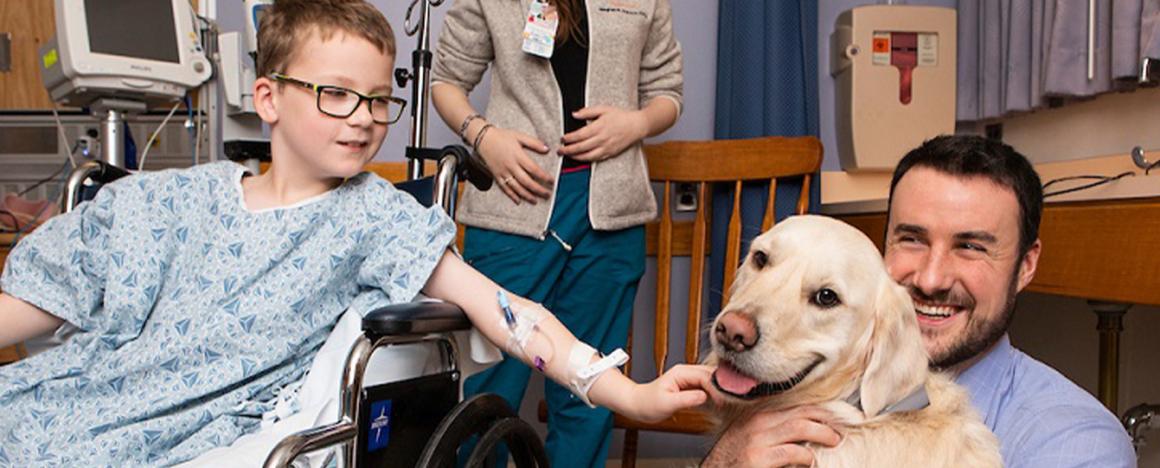Patient Support and Advocacy
Many of our Community Service Learning initiatives occur in a medical setting but students are not part of the clinical care; rather, through the programs below, our students provide patient support and advocacy.
Reach Out and Read
Reach Out and Read provides books for all children ages 0-5 coming into the Tufts Pediatric Outpatient Clinic. The goal is to ensure equal access to literary materials and encourage reading in all stages of development.
Reach Out and Read
Reach Out and Read provides books for all children ages 0-5 coming into the Tufts Pediatric Outpatient Clinic. The goal is to ensure equal access to literary materials and encourage reading in all stages of development.
Emergency Department Patient Advocates
As Emergency Department Patient Advocates, medical students support patients at Tufts' Emergency Department. In collaboration with the medical and social work team, student-advocates help to ensure that patients understand their conditions and what they need to do upon discharge from the hospital.
Friendship Works
Our TUSM partnership with FriendshipWorks for Elders works to reduce social isolation in older adults through medical escorting, friendly helping, and/or friendly visiting.
KICKS (Maine)
Kicks is a student volunteering group whose main goal is to provide a positive and supportive environment for children undergoing hospital
treatments. This is done through one-on-one buddy matches, shift-based volunteering, and helping Maine Make-a-Wish foundation with wish granting as well as community events.
Medical Student Doulas
The medical student doula program aims to increase access to doula services for patients receiving prenatal care at Tufts Medical Center. Given the Maternal Mortality Epidemic, with Black women 2.9 times more likely to experience death related to pregnancy compared to their White counterparts, the MDSP is committed to providing services to marginalized and historically oppressed communities to improve outcomes.
Music and Medicine
The Music and Medicine Collaborative is a community at Tufts dedicated to the intersection of music and medicine. They partner with local organizations to provide in-person and virtual performances to patients, senior citizens, and veterans throughout Boston.
NICU Cuddling and Advocacy Program
The NICU Cuddling and Advocacy Program provides students with an opportunity to spend time cuddling and reading to neonates in an effort to improve their well-being, health, and long-term outcomes. Cuddling and reading have been shown to prevent language delays in NICU babies and mitigate withdrawal symptoms seen in babies with Neonatal Abstinence Syndrome.
Palliative Care and Legacy Medicine (PALM)
In partnership with the Division of Palliative Care at Tufts Medical Center, PALM volunteers help patients transition into life with chronic illness through one-on-one longitudinal companionship.
Socially Responsible Surgery (Maine)
The mission of Socially Responsible Surgery is to strengthen the ability of students to engage in the care of surgical patients, encourage the allocation of resources towards addressing surgical inequalities, introduce future generations of surgeons to concepts of disparities in surgical care, and provide surgeons with the tools to advocate for their patients and communities.
